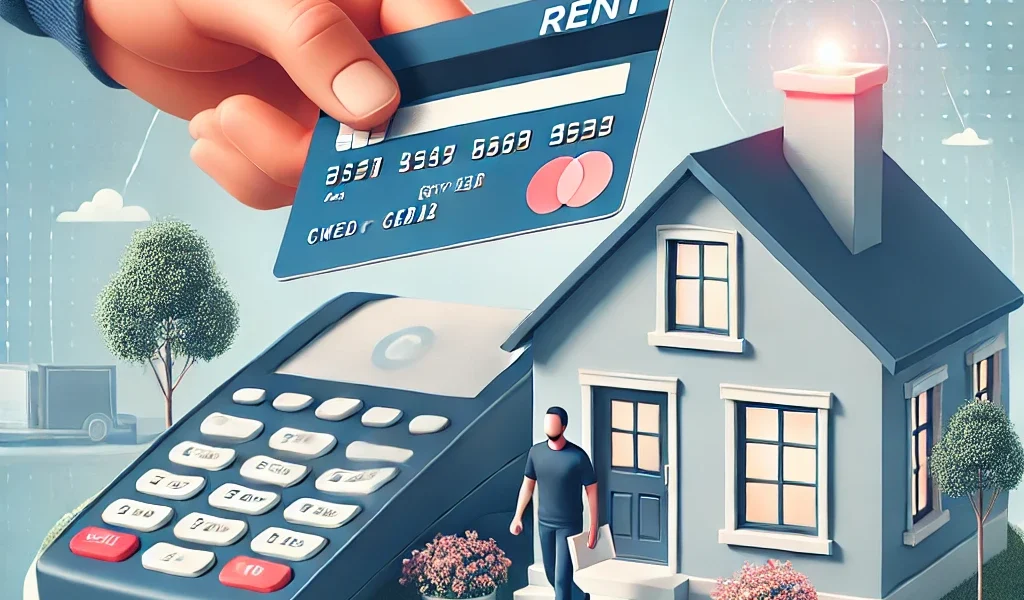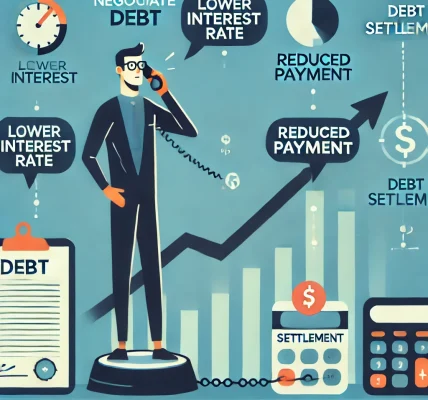Paying rent with a credit card may seem like a convenient option, especially when you’re low on cash or trying to earn rewards. But is it a smart financial move? While some landlords and rental platforms allow credit card payments, there are important factors to consider before choosing this payment method.
In this guide, we will explore whether paying rent with a credit card is a good idea, the advantages and disadvantages, and best practices to minimize risks and maximize benefits.
1. Can You Pay Rent with a Credit Card?
Yes, you can pay rent with a credit card, but it depends on your landlord or property management company. Some landlords accept direct credit card payments, while others require third-party rent payment services like:
- Plastiq
- PayPal
- Venmo
- RentMoola
- Zillow Rental Manager
These platforms process credit card payments and transfer funds to your landlord, but they often charge processing fees.
2. Pros of Paying Rent with a Credit Card
a) Earn Rewards and Cashback
If you have a rewards credit card, you can earn points, miles, or cashback on rent payments, potentially offsetting the processing fee.
b) Helps in Emergencies
If you’re short on cash, paying rent with a credit card can prevent late fees or eviction while you manage your finances.
c) Builds Credit History
Rent payments are usually not reported to credit bureaus, but paying with a credit card helps maintain on-time payment history, which can improve your credit score.
d) Gives You More Financial Flexibility
Credit cards offer short-term liquidity, allowing you to manage expenses before your next paycheck.
e) Convenience and Automation
Some rent payment platforms allow automatic credit card payments, ensuring you never miss a due date.
3. Cons of Paying Rent with a Credit Card
a) Processing Fees
Most third-party services charge a 2% to 3% fee per transaction. If your rent is $1,500, a 2.5% fee adds $37.50 to your payment.
b) High Interest if You Carry a Balance
If you don’t pay off your credit card balance in full, interest charges can quickly accumulate, making rent payments much more expensive.
c) Potential Damage to Credit Score
- High credit utilization (using more than 30% of your credit limit) can lower your credit score.
- If you struggle to make payments, late fees and interest can increase your debt burden.
d) Not All Landlords Accept It
Some landlords only accept bank transfers, checks, or money orders. You may need to use a third-party service, which could add complexity and costs.
e) Risk of Overspending
Relying on a credit card for rent can create a cycle of debt, making it harder to achieve financial stability.
4. Best Practices for Paying Rent with a Credit Card
a) Use a Card with Rewards or 0% APR
Choose a cashback, travel, or rewards credit card to maximize benefits. A 0% APR introductory offer can help you avoid interest if you need extra time to pay off your balance.
b) Pay Off the Balance in Full Each Month
Avoid interest charges by paying your statement balance in full by the due date.
c) Check Processing Fees vs. Rewards
- If rewards outweigh the transaction fee, paying rent with a credit card might be beneficial.
- Example: If you earn 2% cashback and the fee is 2.5%, you lose money.
d) Monitor Your Credit Utilization
Keep your credit utilization below 30% to avoid a negative impact on your credit score.
e) Consider Alternative Payment Methods
- ACH Bank Transfers (often free or lower fees)
- Money Orders (for landlords who don’t accept cards)
- Personal Checks (if accepted)
- Using a Credit Card Only for Short-Term Emergencies
5. Alternative Ways to Pay Rent with a Credit Card
If your landlord does not accept direct credit card payments, try these options:
a) Use a Rent Payment Service
Third-party rent payment platforms let you pay rent with a credit card and send funds to your landlord.
b) Use a Balance Transfer Card
If you have high-interest debt from paying rent on a credit card, a balance transfer credit card with a 0% APR introductory offer can help you pay off the balance without interest.
c) Get a Personal Loan
If you frequently struggle with rent payments, a low-interest personal loan might be a better option than relying on a credit card.
6. When Should You Avoid Paying Rent with a Credit Card?
While using a credit card for rent has benefits, there are situations where it’s best to avoid it:
- You can’t pay off the balance in full (high interest will increase debt)
- The processing fees outweigh the rewards
- You have high credit utilization (hurts your credit score)
- You’re using it as a long-term financial strategy
7. Final Verdict: Is Paying Rent with a Credit Card Worth It?
It depends on your financial situation. If you can pay off the balance in full, earn rewards that offset fees, and use it strategically, paying rent with a credit card can be beneficial. However, if you’re carrying a balance, facing high interest rates, or struggling with credit card debt, it’s best to explore alternative payment methods.




